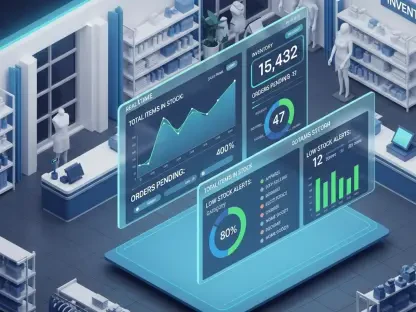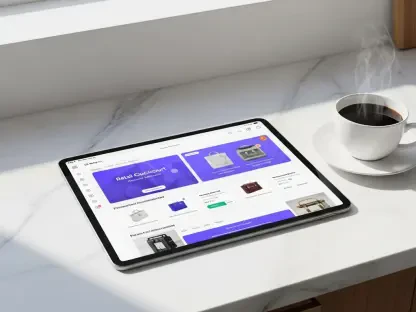In today’s competitive retail environment, enhancing customer experience (CX) through advanced technology and personalized strategies is crucial for success. Modern consumers are not just looking for products; they are seeking enriching and memorable experiences. Retailers who understand and meet these evolving expectations can foster long-term loyalty and distinguish themselves in the marketplace. To thrive in this dynamic landscape, businesses must leverage a blend of innovative technologies and data-driven strategies that cater to the unique preferences of each shopper. This article delves into various approaches and tools that are reshaping the customer experience, highlighting their potential to drive significant growth and customer satisfaction in the retail sector.
The Importance of Customer Experience as a Differentiator
Customer experience is more than a buzzword; it’s a significant competitive advantage in the retail sector. Shoppers are willing to pay a premium for products from companies that genuinely understand and care for their needs. Emotional connections with consumers are powerful drivers of loyalty and can differentiate brands in a crowded market. By focusing on CX, retailers can create an environment where customers feel valued and understood, leading to increased customer retention and advocacy.Retailers must focus on creating meaningful interactions at every touchpoint. This means going beyond the transactional and emphasizing aspects of the shopping journey that can build a lasting impression. From personalized product recommendations to attentive customer service, every element contributes to a superior customer experience that fosters repeat business and positive word-of-mouth. By investing in training staff to provide exemplary service and developing user-friendly digital interfaces, retailers can ensure that every customer interaction is a positive one. The result is a stronger brand reputation and a loyal customer base.
Leveraging Generative AI for Personalization
Generative AI stands out as a transformative tool in modern retail, particularly for personalizing the shopping journey. With over two-thirds of consumers expecting brands to anticipate their needs, AI-driven personalization helps retailers stay competitive. By modernizing outdated systems and enabling seamless online shopping, these technologies allow for tailored experiences that align with individual preferences. Retailers can deploy AI to analyze customer data, such as past purchases and browsing history, to create highly relevant product recommendations and promotions.Retailers using generative AI can analyze vast amounts of data to understand consumer behaviors and predict future needs. This leads to personalized marketing efforts, curated product suggestions, and optimized customer interactions. Such personalized experiences are essential for creating emotional connections and enhancing overall customer satisfaction. Moreover, AI-driven personalization can reduce the overwhelm of choice for customers, guiding them to products that are most likely to meet their needs and preferences, thereby simplifying the shopping process and enhancing their overall experience.
Enhancing Engagement with Connected Intelligence and Edge Computing
Retailers need to engage consumers across multiple channels, including mobile, e-commerce, and immersive technologies like augmented reality (AR) and virtual reality (VR). Connected intelligence plays a crucial role in integrating data, technology, and processes across these platforms, providing a cohesive digital commerce experience. Through connected intelligence, retailers can offer a unified and consistent shopping experience, regardless of the channel the customer chooses to engage with.Edge computing also plays a vital role in improving retail efficiency and customer engagement. In stores like Whole Foods and Amazon Fresh, edge computing technologies streamline the checkout process, allowing customers to shop and leave without waiting in line. This level of convenience is increasingly expected by consumers and represents a significant shift in traditional retail models. By processing data closer to the source, edge computing reduces latency and enables faster and more efficient service, thereby enhancing the overall customer experience.
Immersive Technologies Transforming Retail
The adoption of immersive technologies such as AR and VR is revolutionizing the retail landscape. These technologies offer interactive and personalized shopping experiences, making the process more engaging for consumers. For instance, AR enables customers to visualize products in their home environment, offering a practical and fun shopping experience. This not only helps customers make more informed purchasing decisions but also enhances their overall satisfaction with the shopping process.Virtual reality takes this a step further by creating entirely new shopping environments. Brands like Nike have introduced experiences such as Nikeland, where customers can design their footwear and engage in interactive activities. These immersive experiences not only attract consumers but also create a memorable connection with the brand, fostering long-term loyalty. By providing a unique and engaging shopping environment, retailers can differentiate themselves from competitors and build a stronger emotional connection with their customers.
Real-Time Analytics for Deeper Customer Insights
Data analytics is a powerful tool for gaining a comprehensive view of customers and driving personalized experiences. Utilizing AI-driven technologies such as machine learning (ML) and natural language processing (NLP), retailers can analyze customer data in real-time, gaining insights into preferences, behaviors, and purchasing patterns. These insights enable retailers to tailor their offerings and interactions to meet the specific needs and preferences of each customer.Real-time analytics enable retailers to address fragmented e-commerce ecosystems effectively, ensuring consistent and integrated customer experiences across all channels. By leveraging this data, retailers can strategically develop personalized marketing campaigns, product recommendations, and customer service interactions that resonate with individual consumers. This level of personalization not only enhances the customer experience but also increases the likelihood of repeat business and customer loyalty.
Streamlining Operations with Composable Architecture
Composable architecture, driven by APIs, offers a flexible approach to managing and customizing online retail operations. This system reduces dependencies within the retail ecosystem, facilitating quicker adaptations and cost reductions. By integrating various services and tools through APIs, retailers can create a more responsive and efficient operational environment, allowing them to better meet the evolving needs of their customers.Retail giants like Walmart have successfully used API-driven systems to enhance the synergy between their digital and physical stores. This integration optimizes supply chain management, improves operational efficiency, and enhances customer engagement strategies, allowing for a smoother and more responsive retail experience. By streamlining operations and reducing system dependencies, composable architecture enables retailers to adapt quickly to changing market conditions and customer expectations, providing a significant competitive advantage.
The Shift to Digital and Personalized Experiences
Consumers today expect digital and personalized shopping experiences, and retailers must integrate advanced technologies to meet these demands. This shift necessitates a deeper understanding of customer preferences and the ability to anticipate their needs proactively. By embracing digital transformation and investing in personalization strategies, retailers can create a more engaging and satisfying shopping experience that sets them apart from competitors.Retailers that embrace digital transformation and invest in personalization strategies are better positioned to delight their customers. By leveraging technologies such as AI, connected intelligence, and immersive experiences, they can create a shopping journey that feels unique and tailored to each individual. The ultimate goal is to foster loyalty and boost satisfaction through innovative and customer-centric solutions. By continuously evolving and adapting to changing consumer expectations, retailers can maintain their relevance and competitive edge in the market.
Emphasis on Convenience and Immersive Shopping
The retail sector is evolving rapidly, with a significant emphasis on convenience and immersive shopping experiences. Consumers value the ability to shop effortlessly, whether online or in-store, and expect retailers to provide seamless interactions. Innovations such as self-checkout systems, mobile shopping apps, and immersive technologies are being adopted to meet these expectations and enhance the overall shopping experience.The adoption of AR, VR, and edge computing technologies is a testament to the importance of convenience in modern retail. These innovations not only meet but exceed consumer expectations, providing a seamless and immersive shopping journey that stands out in a competitive market. By offering convenient and engaging shopping experiences, retailers can attract and retain customers, driving long-term growth and success.
Integrating and Streamlining Retail Operations
In the fiercely competitive retail landscape of today, elevating the customer experience (CX) through cutting-edge technology and personalized strategies is vital for achieving success. Modern consumers aren’t merely in search of products; they desire enriching and memorable experiences that go beyond simple transactions. Retailers who acknowledge and respond to these changing expectations can cultivate lasting loyalty and stand out in a crowded marketplace. To flourish in this evolving environment, businesses need to harness a combination of innovative technologies and data-driven strategies tailored to the unique preferences of each shopper. This approach not only enhances customer satisfaction but also drives significant growth.Advanced technologies, such as artificial intelligence, machine learning, and augmented reality, are revolutionizing the way retailers interact with customers. Personalization engines use AI to analyze data and offer customized recommendations, while AR allows shoppers to virtually try before they buy, enhancing the shopping experience. Additionally, data analytics play a crucial role in understanding customer behavior and preferences, enabling retailers to make informed decisions and fine-tune their offerings.This article explores various methodologies and tools that are transforming the customer experience in retail, underscoring their potential to boost both customer satisfaction and business growth. By embracing these advanced strategies, retailers can create a competitive edge, fostering a loyal customer base and thriving in a dynamic market.









